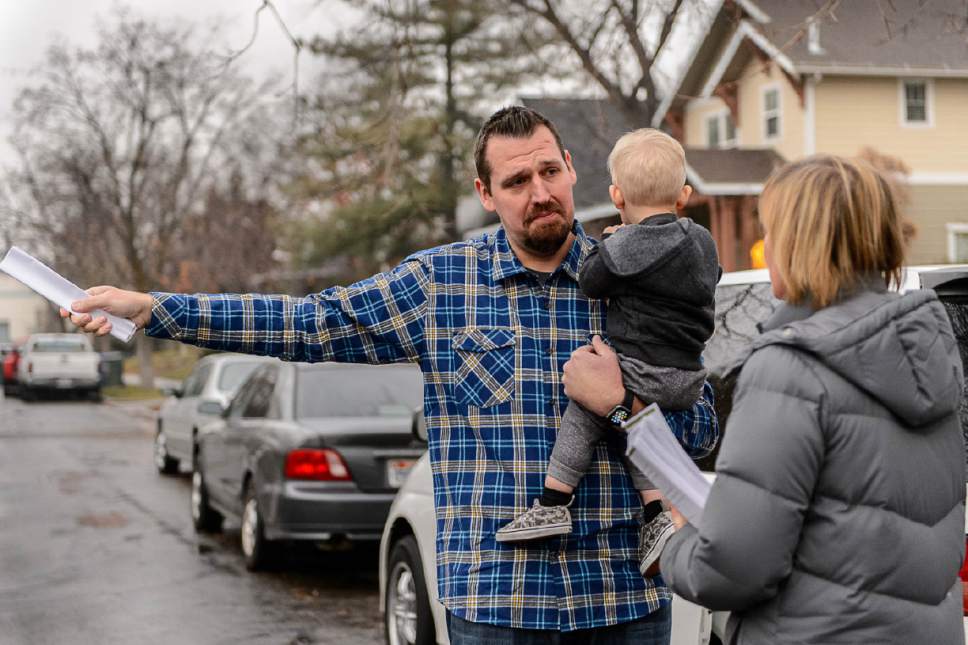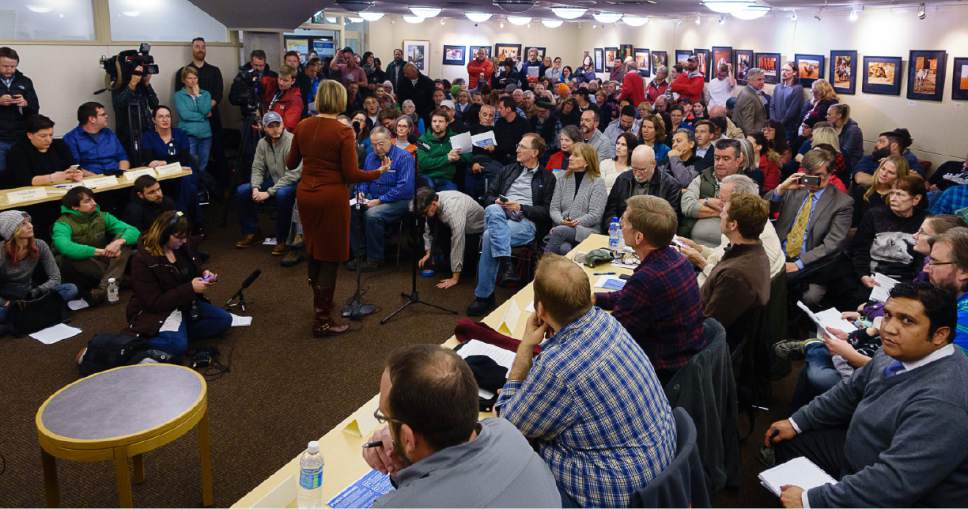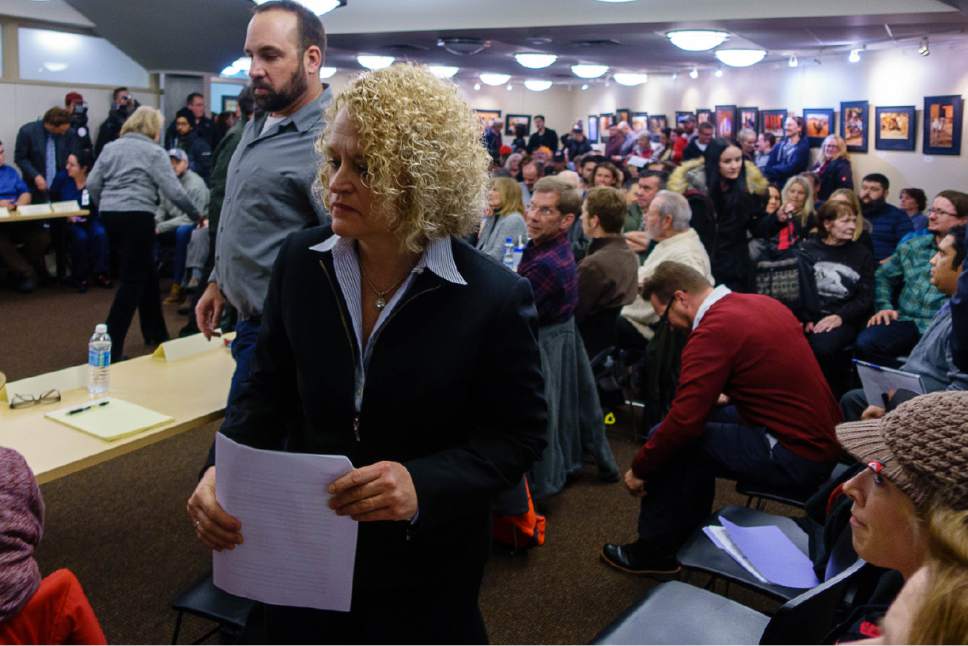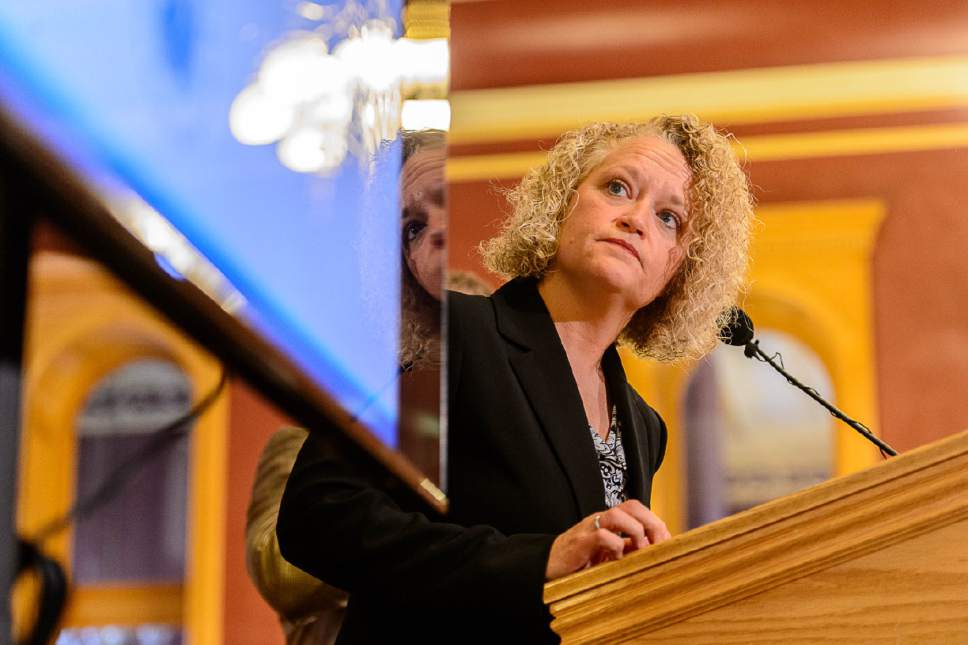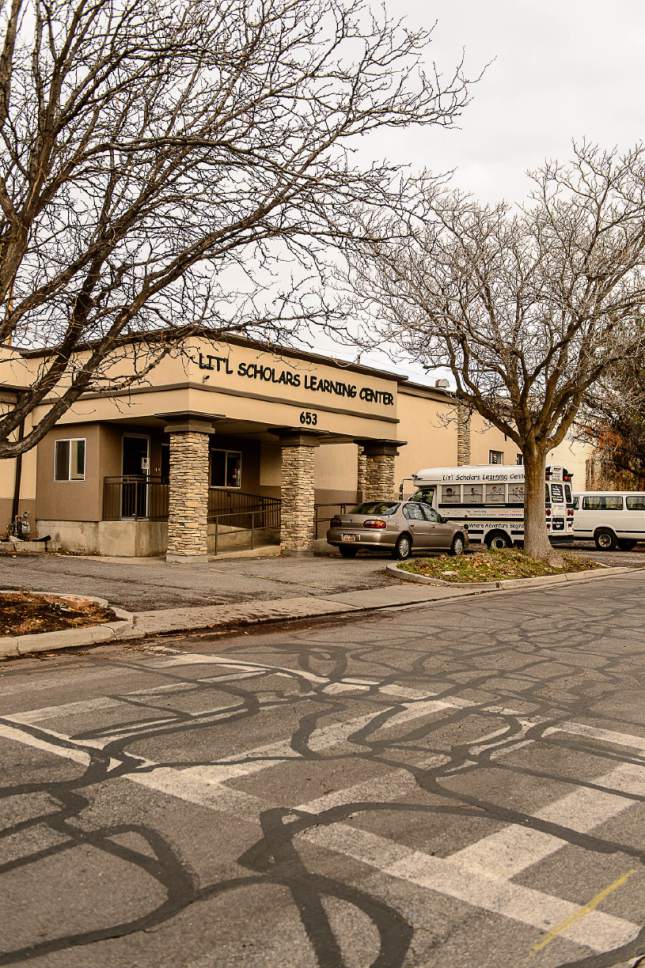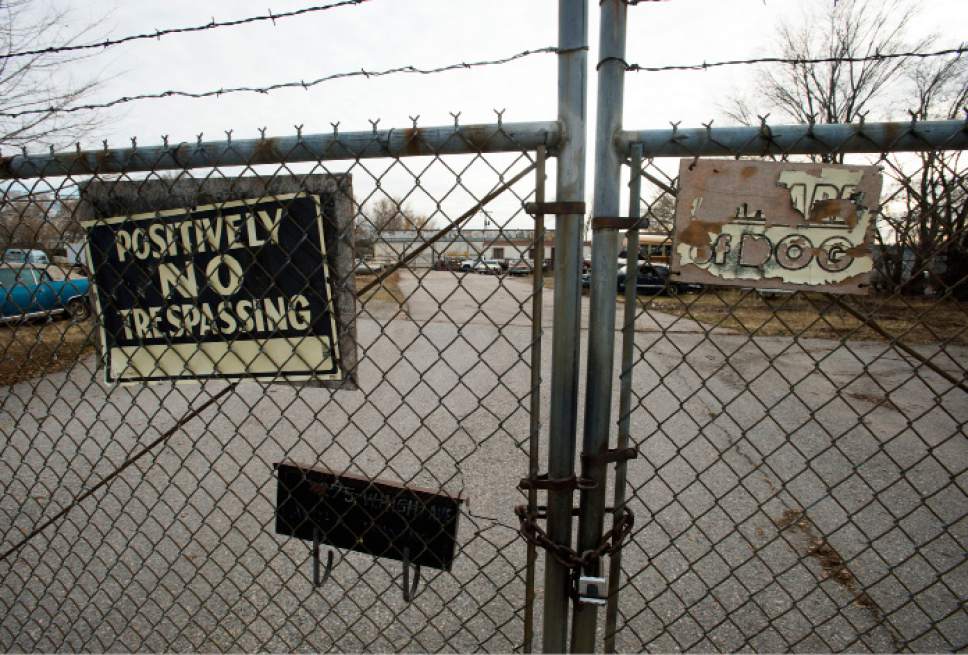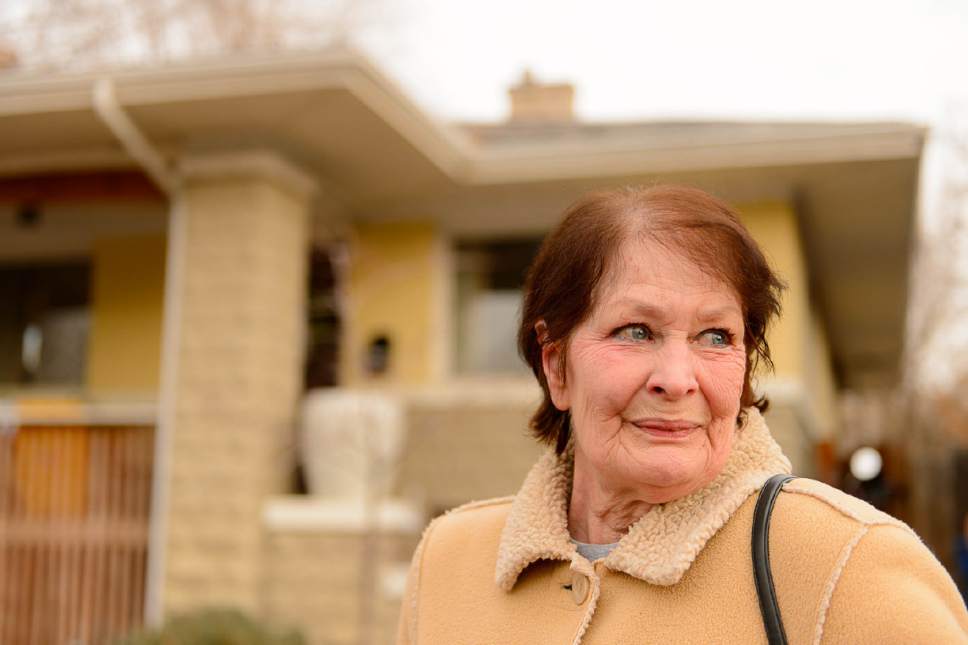This is an archived article that was published on sltrib.com in 2017, and information in the article may be outdated. It is provided only for personal research purposes and may not be reprinted.
Of the four sites chosen by Salt Lake City leaders to host 150-bed homeless shelters, 653 E. Simpson Ave. has borne the brunt of the criticism — and most of the cost.
Contracts obtained by The Salt Lake Tribune through a records request show that the city agreed to pay $7 million to acquire the Sugar House property, money to be paid from $12 million the city's Redevelopment Agency set aside for the four sites.
City Council Member Lisa Adams has called for 653 E. Simpson (2300 South) to be withdrawn after comments from Mayor Jackie Biskupski suggested the administration might be open to rethinking its decision.
But Biskupski and most of Adams' fellow council members stand by the site as particularly well-suited to helping homeless children and families get back on their feet.
Its proximity to transportation and neighborhood services "make Simpson Avenue a really good site," said city spokesman Matthew Rojas.
The downside for the city's real-estate team: "Everything that we liked about the site at Simpson and other places is exactly what developers like in developments."
Although press materials say the city purchased a single 1.2-acre parcel — currently leased by a daycare, a store/cafe, a dance studio and a beauty school — the city's purchase also includes eight smaller parcels to the south of Simpson Avenue that feature three rented homes and parking areas for businesses.
The total acreage is 2.8, with a total assessed value of nearly $2.8 million.
—
Added value • Realtor Boyd Brown, whose Keller Williams office is less than a mile from 653 E. Simpson, said that while the land and property alone might be worth $2.8 million, its capital value likely bumped its worth to at least $5.6 million.
Eight tenants pay the current owner, Forest Company, a total of more than $28,000 per month.
The city's $7 million price was "absolutely" a lot to pay, Brown said, but not altogether surprising given the interest in the area shown recently by developers.
The Tribune was unable to reach the company or its registered agent, Jim Duffin. Although the business' incorporation led some residents to conclude the land had changed ownership in the days before the sale, it has owned the majority of the property for more than 60 years.
The city was hamstrung in its negotiations by time, expanding its search from two sites to four in late September while state lawmakers sought progress before the next legislative session.
And there were few available properties far enough from the others to meet the so-called "scattered-site" model. Of 11 finalists, the only locations farther east were 1565 S. Foothill and 2234 S. Highland. The Foothill site is known to have received demerits for its distance from homeless services, while the Highland site is near a state liquor store and Fairmont Park.
—
Other sites • A second site the city has contracted to purchase for a shelter is at 275 W. High Ave. Mark Aletto, owner of Aloha Towing, acknowledged that he made out pretty well in selling his 3-acre salvage yard assessed at $1.2 million for $3 million.
Although the city wasn't identified as the potential buyer during negotiations, Aletto said he guessed it.
"I wasn't easy to [make] leave, and I didn't really even want to leave at that point, but I understood what was going on here," he said. "For me, I was willing to play ball, but it was just a matter of I had to make it worth my while — and I still have plenty to contend with as far as finding another location."
City administrators believe the city will be reimbursed for the purchases — as well as the fair-market value of its own property at 648 W. 100 South, assessed at $717,000 — from an expected total of $27 million in state funding. A request for proposal for an architect includes a construction cost estimate of about $10 million per shelter.
The city currently has a three-year option to buy the 131 E. 700 South property owned by The Church of Jesus Christ of Latter-day Saints.
House Speaker Greg Hughes, R-Draper, said he was "pretty pronounced in saying that there is no blank check" during talks with city leaders, and that "we're going to assess whether we think [the cost] was egregious or irresponsible."
But Hughes added that lawmakers "understand how hard this is to do, and we want to see progress, and we know progress is hard to come by."
—
Flexibility • Adams said that should the Simpson Avenue site be withdrawn from shelter consideration, it might be a candidate for affordable housing, a purpose for which the city set aside $18 million of Redevelopment Agency funds in October.
But some fairly standard language in the contract may also allow the city to back out of the purchase completely at little cost.
During a 120-day due diligence period, it says, the city "shall have the right, at its sole discretion and for any reason, to terminate" the deal while owing $10,000 in earnest money.
Brown said such due diligence clauses generally allow a buyer complete flexibility.
"Honestly, I could go over there on a snowy day and say I didn't like the way the snow stuck to the sidewalk," he said. "In essence, the city could say, 'I wasn't happy with what I saw.'"
To date, though, city officials say they're moving ahead with a plan to educate residents about the differences between the resource-center model they envision and the drug dealing and law-breaking seen in the Rio Grande neighborhood around The Road Home emergency shelter.
Rojas said there's no firm plan of what to do with the parcels south of Simpson Avenue — which make up more than half the site's land.
That's why upcoming community design workshops on Jan. 11 and 18, he said, will be "more than paint color."
The city might create a buffer zone between the resource center and single-family homes, he said, and should the Simpson Avenue site be dedicated to families with children, the city might build a playground, or incorporate a preschool into its plans.
"We wanted to be able to have, literally, wiggle room," he said, "because we don't need that full space."
The $7 million price tag at Simpson Avenue includes $300,000 to take Forest Company's place in a lawsuit against the Utah Transit Authority, in which Forest Company sought no less than $300,000 in damages.
It had alleged that UTA reneged on an agreement to relocate concrete barriers on the property's north side after the construction of the 700 East S-Line streetcar station, and that UTA built two large permanent electrical boxes on the east side of the property after saying that a needed power installation would be underground.
Rojas said the city paid $300,000 with the intent to resolve the lawsuit.
Twitter: @matthew_piper


